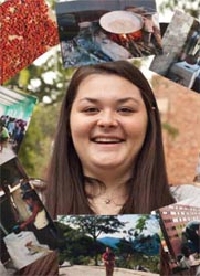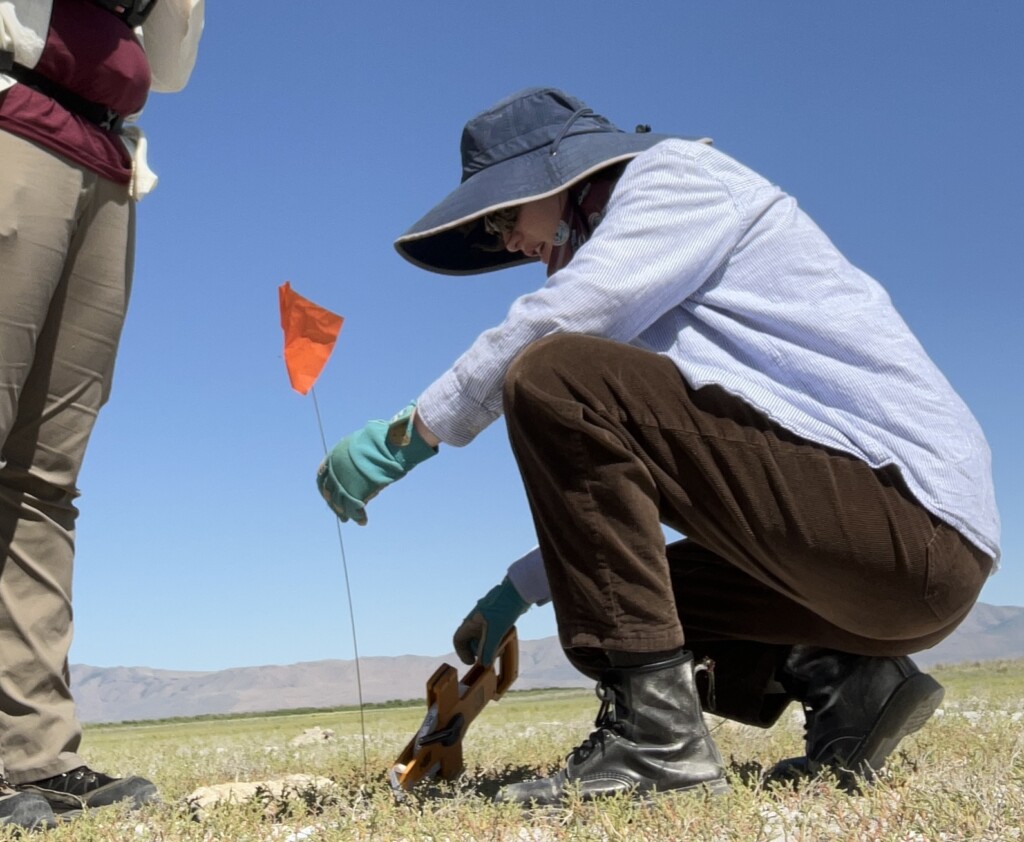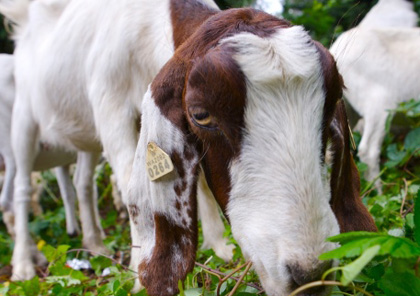Page 159 • (3,680 results in 0.053 seconds)
-

vocation intern and Wild Hope Fellow. He has found ways to use his interest and expertise in vocation and philosophy to inspire his peers through his vocation drop-in hours, which he hosts every Monday from 5:30-7:30 pm. Etzell became involved in Wild Hope during his junior year after being recommended for the Wild Hope Fellows Program. He applied out of curiosity, and learned quickly that the Fellowship is for people who value reflection, curiosity, and wonder. “We work together to learn more about
-

or PhD to pursue youth advocacy and justice work in education Born in Nairobi, Kenya to a family of asylum-seekers from Mogadishu, Somalia, Aziza Ahmed moved to the US at five, and came to PLU from Auburn’s Mountainview High, with an associate’s degree in gender studies from Green River College already under her belt. A committed activist, Ahmed served as the founding Interfaith Coordinator at Campus Ministry, worked at the Center for Student Success, and was part of “the collective,” an
-

program, including working with healthcare providers or at women’s shelters, working on migrant issues or even student teaching. In Paris Cochran’s case, she was able to find something that matched perfectly with her two majors and interest area: She worked with HELPS International, a non-profit that helps indigenous communities install sustainable wood-burning stoves in kitchens. The stoves, which burn fuel more efficiently than traditional stoves, not only mitigate deforestation in the area, but
-

working in conservation. Why did you want to pursue an environmental studies degree? I’m a tree hugger, so naturally this major caught my eye. Genuinely, though, I chose Environmental Studies because it teaches me to use multiple fields of study to approach environmental issues. That’s a pretty useful skill for anyone to have. Pursuing this degree also allows a thorough focus on multiple interests, and it’s rewarding to juggle my love for the sciences and humanities at the same time. Why did you
-

discuss her exciting internship and to offer suggestions for anyone looking to land their own internship working in conservation.Why did you want to pursue an environmental studies degree? I’m a tree hugger, so naturally this major caught my eye. Genuinely, though, I chose Environmental Studies because it teaches me to use multiple fields of study to approach environmental issues. That’s a pretty useful skill for anyone to have. Pursuing this degree also allows a thorough focus on multiple interests
-

us to discuss her exciting internship and to offer suggestions for anyone looking to land their own internship working in conservation.Why did you want to pursue an environmental studies degree? I’m a tree hugger, so naturally this major caught my eye. Genuinely, though, I chose Environmental Studies because it teaches me to use multiple fields of study to approach environmental issues. That’s a pretty useful skill for anyone to have. Pursuing this degree also allows a thorough focus on multiple
-
December 1, 2009 The Meeting Pace Chris McKnight ’12 likes to think of Hinderlie Hall as a meeting place between upper and lower campus. And he has a point: the hall sits right on the slope – called Hinderlie Hill, no less – that divides upper and lower campus. But to McKnight, a sophomore math major from LaConner, Wash., the idea of a meeting place means more than that. He considers it the place where all types of PLU students come together. “Hinderlie is the bridge – there is a little bit of
-
Gates Sr. were looking for something to do with all that extra money. The Gates family had looked into supporting various philanthropic efforts in education, libraries and, on the global scale, population issues. But ultimately it was the simple vaccine – or more accurately, the lack of childhood immunizations across much of the world – that gave the Gates Foundation its primary mission. And so the revolution in global health began. Dr. William Foege ’57, former director of the U.S. Centers for
-

key problems in food ethics: the ethics of global hunger; the ethics of food consumption as it relates to personal and public health; and the ethical underpinnings of “the food movement” and its attraction to local and ethically motivated supply chains. Paul B. Thompson – the W.K. Kellogg Chair in Agricultural, Food and Community Ethics will speak at 7 p.m., Feb. 21 in the UC Regency Room. “He’s worked with the industry side of farming, and is interested in issues of sustainability and often has
-

it’s something I care about and PLU as an institution cares about — we put into practice what we talk about constantly in our mission statement. What’s next: I’m going back to Guatemala to continue research through the Fulbright Program.Skylar LarsonSenior (Class of 2019). Hometown: Fort Collins, CO Global Studies & Hispanic Studies majors Involvement: Center for Gender Equity, Old Main Market employee, the collective, tour guide Number of times studying away: I studied away three times – I did a
Do you have any feedback for us? If so, feel free to use our Feedback Form.


